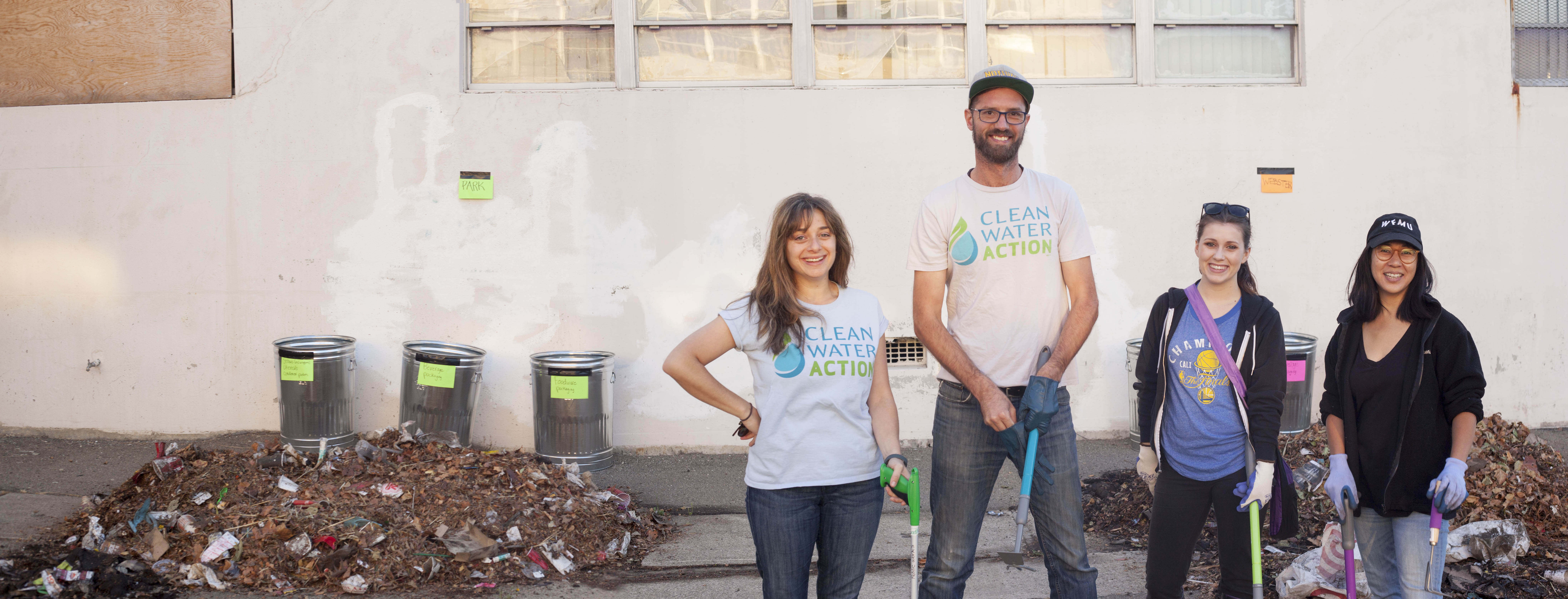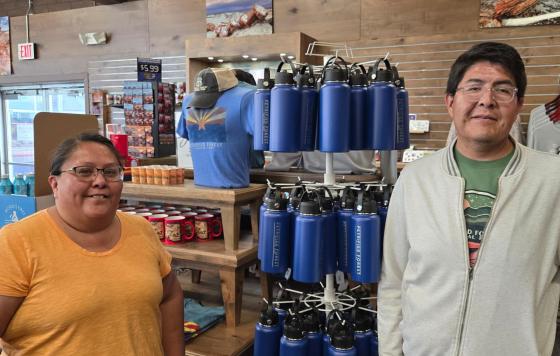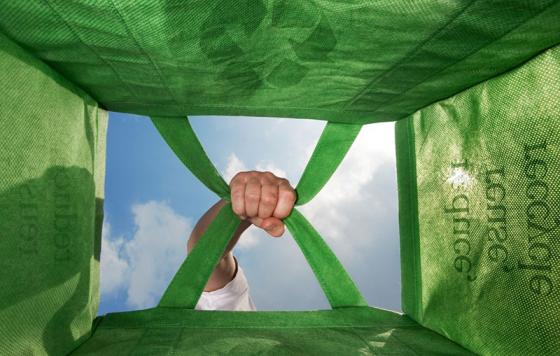
On October 8th, Alameda City employees Kerry Parker and Marc Bautista joined ReThink Disposable program staff and members of Clean Water Action's field canvass team to pick through litter collected by the city’s streetsweeper from the two main busy commercial downtown districts on the island. The goals: analyze the contents and characterization of street litter including each piece’s material type (like plastic, fiber, metal, or glass), product type (like cup, lid, container, packet, or straw), and brand (if the littered food and beverage packaging had a clearly recognizable brand).
This litter study is part of ReThink Disposable’s initiative to “unpackage” Alameda island by getting 100 food businesses to become ReThink Disposable certified. Businesses implement cost-saving practices to reduce and eliminate the same commonly littered food ware items that the team studied in this street litter survey. Over time, ReThink Disposable aims to demonstrate a significant and measurable reduction of the street litter that emanates from food service establishments that the program has worked with to reduce litter-prone packaging.
After digging through the two piles – one from Webster Street and one from Park Street – the group identified and sorted the pieces of trash that originated from food businesses. Items included hot cups, cold cups, straws, hot cup sleeves, containers such as clamshells and soup bowls, sauce cups, napkins, condiment packets, and utensils. The team used Litterati, a user-friendly app for photo documenting, tracking, and analyzing litter.
At the end of the event, event participants had picked up and coded 634 pieces of single-use food and beverage packaging related litter in the app. The ReThink Disposable team has evaluated the data collected to determine things like the most common food and beverage packaging items that become street litter and the identifiable brands most represented in the street litter. Here are the key take-aways from the data:
1) The litter was comprised of forty-one percent fiber and wood, and fifty-nine percent single-use plastics.
2) Thirty-four percent of the street litter had clear identifiable branding, and the top six brands identified in order of pollution impact/prevalence of litter high to low were: McDonald’s, Starbucks, Jack-in-the-Box, 7-11, In and Out, and Taco Bell.
3) Of the total pieces of litter collected, beverage-related packaging comprised sixty-three percent and food related packaging comprised thirty-seven percent.
4) The most common items in beverage-related street litter were cold cups and lids, hot cups and lids, and straws and straw wrappers.
For ReThink Disposable staff, the event was also an opportunity to reflect on the importance of the program’s work to move businesses towards reusables.
“We spend a lot of time talking to businesses about how transitioning to reusables is a challenging but ultimately cost-effective and powerful contribution they can make to protect the environment; but it isn’t often that we have an opportunity to go through the litter businesses are producing on such a granular level and really see (and touch) the immediate impacts of the problem,” said Samantha Sommer, ReThink Disposable’s program manager.


